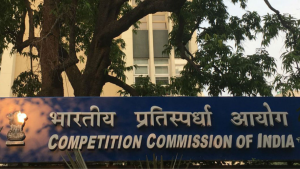

Custodial Deaths: A Heinous Crime
It is evident that India has achieved several milestones, including the recognition of the right to a clean and healthy environment as a component of the right to life enshrined under Article 21 in 74 years of its independence. The strides made by India are not ordinary but ought to be commended. However, on the other hand, India has failed to take due notice of offences committed by state officials such as law enforcement officers in custody. A consequence of this is that the crime of custodial torture has been normalised. As pointed out by Alf Gunvald Nilsen in his ethnography of Jharkhand, police brutality, torture, and bribery feature in the everyday life of tribal persons in these regions. He highlights that tribals consider police brutality a by-product of their own wrong-doings.
Custodial torture has pervaded India’s post-colonial history. One of the most recent cases was that of Jeyaraj and Bennix, a father and son in Thoothukudi (Tamil Nadu), who died in custody after law enforcement officers brutally beat them up. It is prudent to take notice of this offence due to the nature of the crime itself and the people at whom it is often targeted. This article will cover three aspects of custodial deaths. It will first argue that custodial violence violates the inalienable fundamental rights enshrined under the Constitution of India 1950. It will then examine recent data before reviewing the need for taking cognisance of custodial violence. It will then provide recommendations about how this menace can be reduced in the short run.
Custodial Deaths: A Violation of Constitutional Rights
Custodial torture is often inflicted upon individuals to extract facts and statements from individuals, which is against their right to self-incrimination. Article 20(3) of the Constitution outrightly provides an individual with the right against self-incrimination. Thus, in cases where brutality is inflicted to incriminate an individual, it is a gross violation of fundamental rights. Confessions to law enforcement officers are inadmissible.
Beyond self-incrimination, any form of custodial violence is also violative of Article 21. This has been highlighted by the Supreme Court in a plethora of cases. In the landmark judgment of Nilabati Behera v. State of Odisha, Justice AS Anand opined that, “A custodial death is perhaps one of the worst crimes in a civilised society governed by the rule of law”. The Court also held that the protection of Article 21 could not be denied to convicts and prisoners. The very purpose of Article 21 is to guarantee life and liberty. Thus, an action that seeks to take away life or prevent its enjoyment not in accordance with due process is violative of fundamental rights.
The defence of sovereign immunity is not available to the state in such cases of torture. This principle inherited by India from British colonial law provides immunity from prosecution to the representatives of the state from prosecution for acts carried out as part of their official duties. In the case of State of Andhra Pradesh v. Challa Ramakrishna Reddy & Ors, the Supreme Court held that the state could not take this defence of sovereign immunity when there is a violation of the constitutionally guaranteed fundamental rights of the citizens. The view was also upheld in Saheli, A Women’s Resource Centre v. Commissioner of Police, where the Supreme Court held that the state would be liable for all the acts of its employees, whether in the exercise of sovereign power or not, if they infringed upon the fundamental rights of its citizens. State immunity is limited to those acts which were undertaken for those activities which benefitted the society at large and deserved protection. Custodial torture does not fit this definition and thus deserves no immunity.
The Nature of Custodial Torture
It is a matter of great concern that there has been an upward trajectory in the number of custodial deaths recorded. While 1,731 individuals died in custody in 2019, the number increased to 2,307 in 2021-22. This indicates that the number of cases went up during the COVID-19 pandemic. In the last twenty years, only twenty-six policemen have been convicted for custodial deaths.
The impunity for custodial torture stems from an unequal power dynamic. The FIR for a case of custodial torture is to be filed with the police itself and, in many cases, at the same station where the violence occurred. The burden of proving the crime falls on the individual alleging police brutality. Considering that the standard of proof required in a criminal trial is beyond reasonable doubt, individuals often fall short in proving the same due to the sheer absence of evidence due to restricted access to the spaces where the violence took place and the people involved. In the off-chance that the victim’s family wins the case, the compensation is often minuscule due to the lack of any law or guidelines for compensation. Although the 152nd Law Commission Report recommended the payment of a minimum of Rs. 100,000 as compensation in case of custodial death; it has not yet been implemented.
The data reflecting custodial brutality has one shocking disparity – three-fifths of the number of people killed in police custody in 2019 belonged to the poor and marginalised communities. About two-thirds of victims are from marginalised communities such as the SC, ST or OBC communities. They also included women, who form four percent of all prisoners in India. Shockingly, members of these communities comprise about two-third of all prisoners in India. The data reflected that many of these individuals were picked up for petty crimes.
Justice DY Chandrachud of the Supreme Court, in the case of Patan Jamal Vali v. State of Andhra Pradesh, has highlighted the need to consider the intersectional nature of offences. Such an approach examines the particularities of the situations faced by those who face the brunt of police brutality. For instance, a marginalised woman may be discriminated against on the basis of caste or sex or both. Any analysis of custodial torture should thus assess underlying structures of inequality, be it social, educational or economic.
Remedial Measures: What Can Be Done in The Short-Run?
Measures to end custodial violence have often been focused on the long run. While these remedies, including police education and sensitisation, should be commended and implemented, short-term measures are pivotal in providing victims and their families with immediate relief. This article proposes two such solutions.
There should be an independent body/person that handles complaints of custodial torture. Section 176 of the Code of Criminal Procedure also mandates the judicial magistrate to conduct an enquiry in cases of custodial deaths. However, judicial inquiries have been ordered in a mere 20% of cases between 2005-2017. The investigation in such cases should be conducted by the magistrate’s office to prevent interference from the police. Further, efforts must be made to ensure that for every such FIR, there is a mandatory inquiry. The Supreme Court in the Prakash Singh vs. Union of India directed state governments to set up Police Complaints Authorities at the state and district level for looking into complaints against police officers. This direction needs to be implemented in every district.
The second suggestion deals with the burden of proof. While ordinary criminal jurisprudence places the burden of proof upon the state, the concept of reverse burden of proof has achieved legitimacy in several legislations, including the POCSO Act. As recommended by the 113th Law Commission, the burden of proof should be placed on the police in instances of custodial deaths. This reduces the burden on the victim in such cases, where obtaining evidence is highly cumbersome and challenging. It is also prudent to remember that the evidence obtained via torture by police officials in prisons is inadmissible in a court of law.
Conclusion
It is no doubt that custodial violence deserves no legitimacy in a democracy such as ours. Despite an increase in the number of such incidents, we see no increase in convictions. India has not ratified the United Nations Convention against Torture, which again speaks volumes about its commitment to tackle custodial violence Although the Supreme Court has made efforts by ordering police stations to install CCTV cameras to promote transparency, compliance is deficient. It is of utmost importance that the state implements remedies to curb custodial violence in the short and long term and puts an end to the culture of impunity for police personnel.
RECENT ARTICLES


Testing the Waters: Pre-Implementation Evaluation of the 2024 CCI Combination Regulations

Not Quite Rocket Science

Administration of justice needs an Aspirational Gatishakti

-
Rule of Law ProjectRule of Law Project
-
Access to Justice SurveyAccess to Justice Survey
-
BlogBlog
-
Contact UsContact Us
-
Statistics and ReportsStatistics and Reports
© 2021 DAKSH India. All rights reserved
Powered by Oy Media Solutions
Designed by GGWP Design
